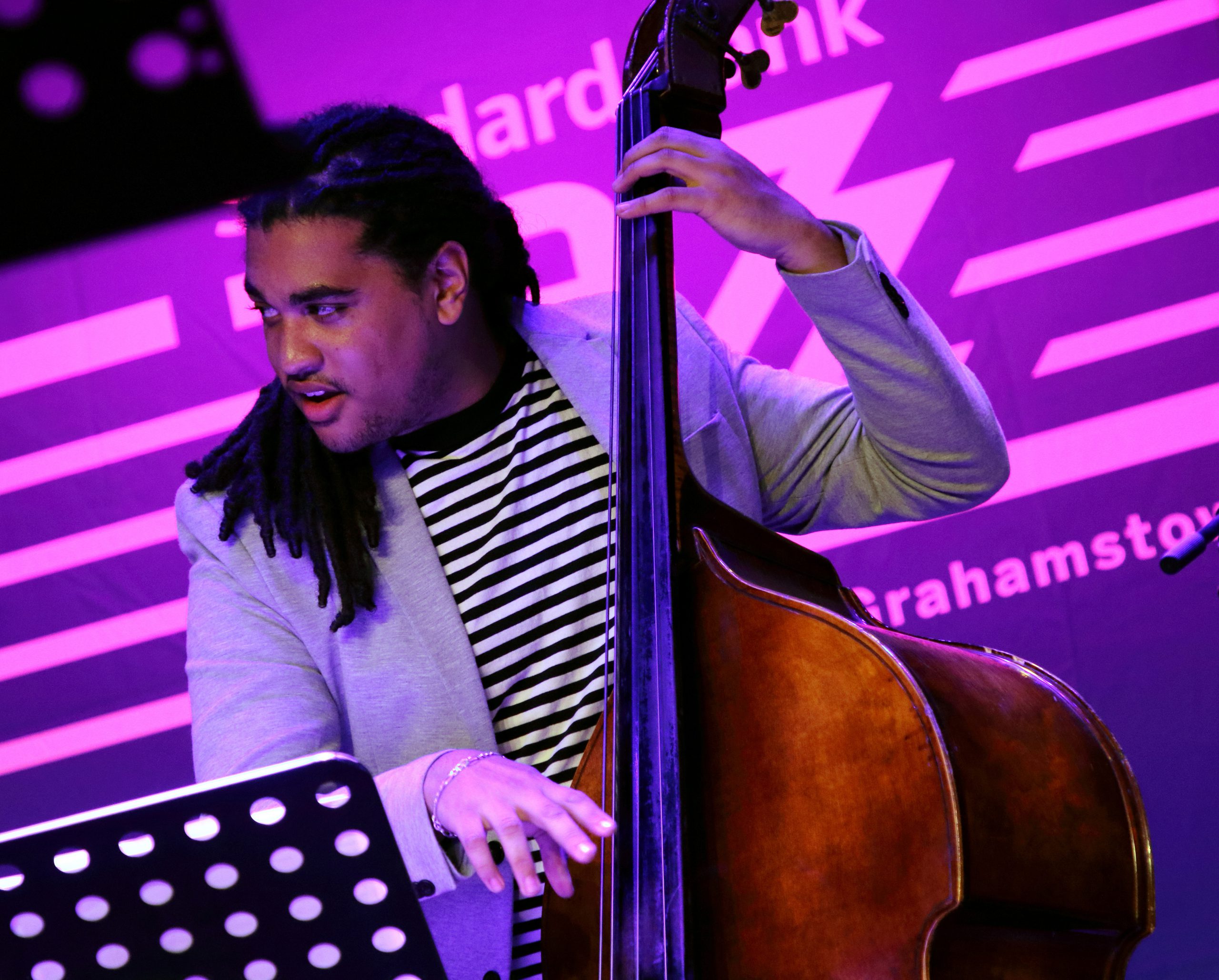JAZZ: Benjamin Jephta: Born-coloured; not born-free
Review by CASEY LUDICK and BABALO DUMA
The familiar stretch tent and bar outside the Festival’s premier jazz venue – the DSG hall – are gone, along with the sponsorship from Standard Bank that has sustained the jazz festival for over a decade.
Inside, however, there are improvements. NAF technical director Nicci Spalding has put up boards dressed in attractive print with a slight nod to African textile patterns to prevent the music from our top-notch local and global musicians from bouncing off the walls. We no longer have to try to ignore the corporate banners behind the musicians. It is no longer the Standard Bank Jazz Festival; it is now the National Jazz Festival.
On stage is former Standard Bank Young Artist for jazz, bassist Benjamin Jephta, having deepened in experience since his 2017 award. The lights dim, the empty vibe outside the venue forgotten.
At first, the music is convoluted. Sphelelo Mazibuko’s drums seem overzealous, overpowering Jephta’s bass and Xavi Torres Vicente’s piano for most of the first number, but it’s not long before things are on track.
What started as a presentation for his master’s degree on the importance of coloured identity at Berklee Global Jazz Institute now flourishes as a fully formed artistic performance with modernised interpretations of musical genres emerging from, or associated with, coloured identity: Ghoema, Gqom, Kwaito, and Hip-Hop.
Demonstrating through music the multifaceted aspects of coloured identity, Jephta advocates for it being rooted in Africa and strikes a note for coloured people as an overlooked racial grouping under-represented within South Africa’s social and political life.
Revealing new-found skills in his solos, he asks we reimagine ourselves in society and addresses the stereotypes many people in coloured communities have internalised, eroding their self-esteem.
Born coloured, not born free invokes a feeling of unease as it sets us on a jazz journey through coloured identity. As Jephta’s performance progresses, the music becomes increasingly vulnerable, echoing a young generation looking to find a way to talk about the issues they face and their interpretation of reality, riffing off how jazz has shaped coloured culture and how coloured culture has, in turn, shaped jazz in South Africa.




